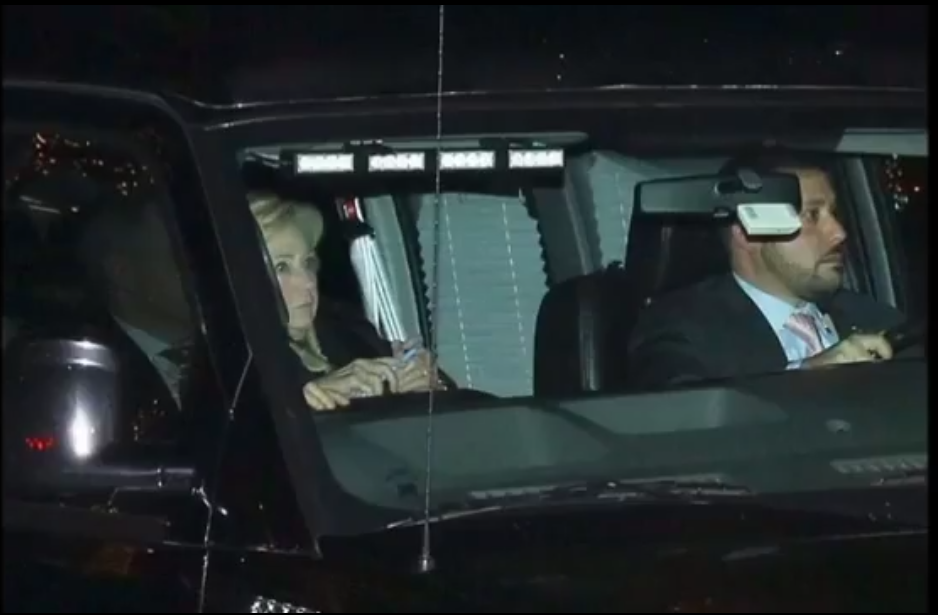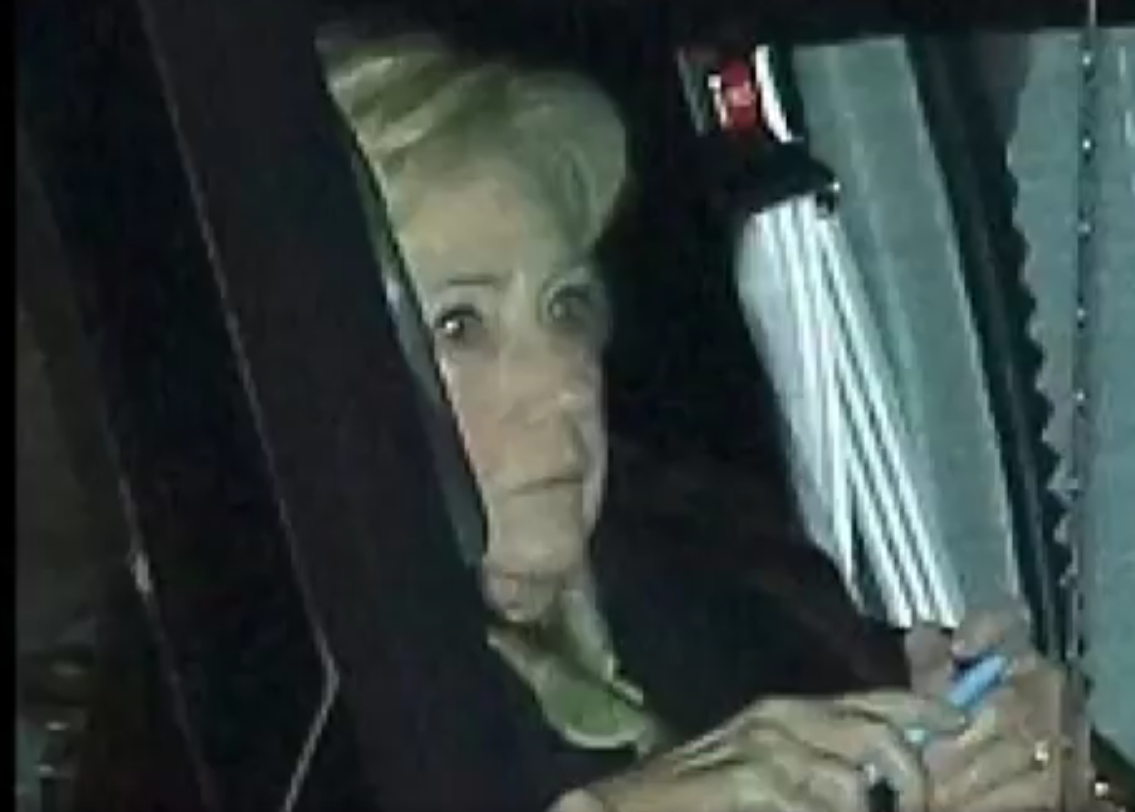It looks like you're using an Ad Blocker.
Please white-list or disable AboveTopSecret.com in your ad-blocking tool.
Thank you.
Some features of ATS will be disabled while you continue to use an ad-blocker.
share:
originally posted by: MojaveDesert
Yes, pieces of each but not recently...have to revisit. However, regardless of bold-type above is irrelevant since the changes (amendment) only applies to UCMJ which can only be applied to active duty military.
Right, which would not include someone like Podesta, so why wait until Jan 1, 2019 to arrest him if Q has everything and talked about his arrest a year ago?
Very interesting Post concerning the Pit shooting and the "Satan" tweet account that Q directly
pointed to. Caveat. Q did not say the account "holder" was a person of interest, only that the account itself was used to send messages between
nefarious folks.
In essence the individual contends that by taking the stringers posted on the Satan Tweet account and decoding they arrived at this:
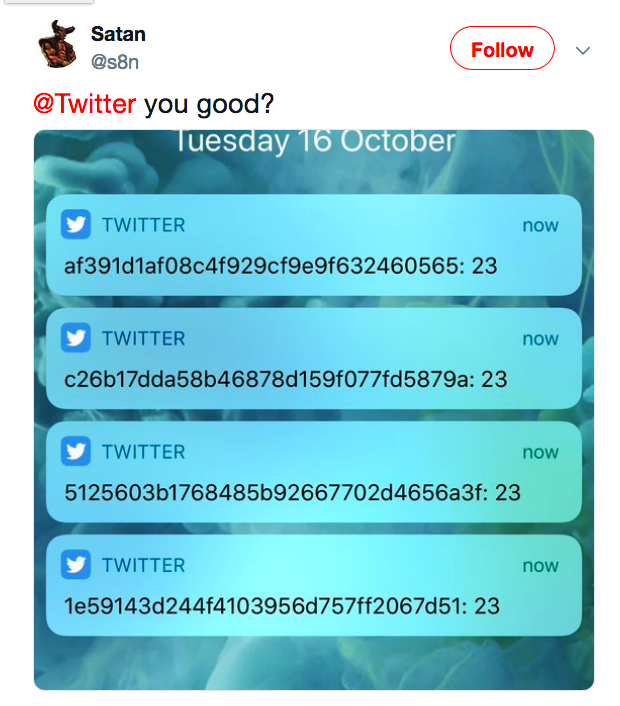
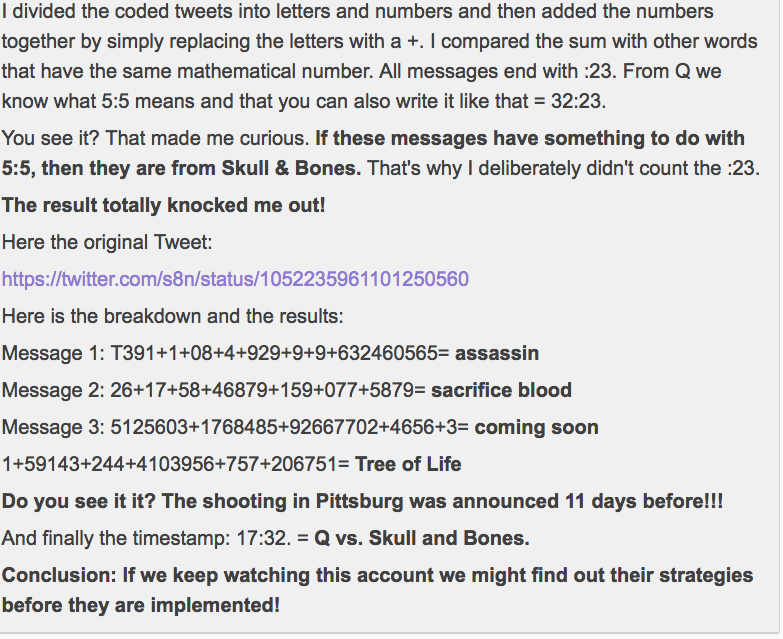
Assassin Sacrifice Blood Coming Soon Tree Of Life
Time Stamp: 17:32. = Q vs. Skull and Bones
To lighten the load a bit, DJT Visting...
In essence the individual contends that by taking the stringers posted on the Satan Tweet account and decoding they arrived at this:


Assassin Sacrifice Blood Coming Soon Tree Of Life
Time Stamp: 17:32. = Q vs. Skull and Bones
To lighten the load a bit, DJT Visting...
originally posted by: crankyoldman
originally posted by: carewemust
originally posted by: tiredoflooking
twitter.com...
WHAT.IS.WRONG.WITH.THIS.WOMAN?
An Android or Clone.
I am going with "Apple" Cranky 😲😉❤️👊
The Taff 🍺
originally posted by: crankyoldman
originally posted by: carewemust
originally posted by: tiredoflooking
twitter.com...
WHAT.IS.WRONG.WITH.THIS.WOMAN?
An Android or Clone.
She looks like she's back...fresh from the taxidermist.
edit on 1-11-2018 by IAMTAT because: (no reason given)
originally posted by: IAMTAT
originally posted by: crankyoldman
originally posted by: carewemust
originally posted by: tiredoflooking
twitter.com...
WHAT.IS.WRONG.WITH.THIS.WOMAN?
An Android or Clone.
She looks like she's back...fresh from the taxidermist.
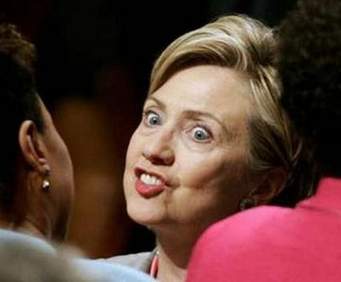
Different eye color
originally posted by: MetalThunder
Hey Dashen ..... Ummmm, have ya heard
Iran
The Times of Israel is reporting that a new computer virus 'more powerful' than the Stuxnet worm that devastated the Iranian nuclear weapons program in 2010 has been unleashed on Iran's "infrastructure and strategic systems."
Just saying
And Newsweek
Coincidence ?
And there's this. After seeing the reports you linked, Rhouani may be worried about more than sanctions in this statement.
Rouhani warns Iranians of hard times after new US sanctions take effect
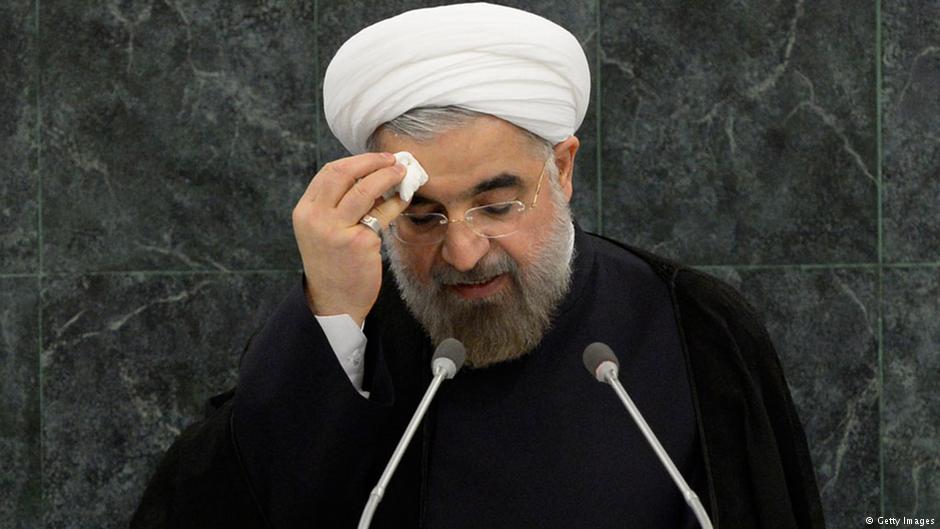
edit on 1-11-2018 by The GUT because: (no reason given)
originally posted by: IAMTAT
originally posted by: crankyoldman
originally posted by: carewemust
originally posted by: tiredoflooking
twitter.com...
WHAT.IS.WRONG.WITH.THIS.WOMAN?
An Android or Clone.
She looks like she's back...fresh from the taxidermist.
let us take a trip back in time to see another of the many faces...
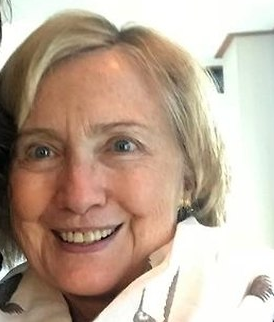
G Pap is quietly becoming the most interesting tweeter at the moment.

I found one tweet exchange remarkable. He describes his time line, and the C_A NBC reporter tweets back he has no idea what really happened in his own life. The only interview I saw after his testimony suggested he was pasted over real good and he, they and soon we will know it.

I found one tweet exchange remarkable. He describes his time line, and the C_A NBC reporter tweets back he has no idea what really happened in his own life. The only interview I saw after his testimony suggested he was pasted over real good and he, they and soon we will know it.
the
originally posted by: crankyoldman
Very interesting Post concerning the Pit shooting and the "Satan" tweet account that Q directly pointed to. Caveat. Q did not say the account "holder" was a person of interest, only that the account itself was used to send messages between nefarious folks.
In essence the individual contends that by taking the stringers posted on the Satan Tweet account and decoding they arrived at this:
Assassin Sacrifice Blood Coming Soon Tree Of Life
Time Stamp: 17:32. = Q vs. Skull and Bones
To lighten the load a bit, DJT Visting...
I have no words 😲 wow, umm kaay. Just another co inkydink.
Good work Anon, and thanks Cranky got another route to peruse.
Lurk mode now activated, see you allsoon.
TheTaff
CIA Gathered Congressional Communications on Whistleblowing; After 4 Years of Pressing, Grassley Gets Notifications
Declassified
“The fact that the CIA under the Obama administration was reading Congressional staff’s emails about intelligence community whistleblowers raises serious policy concerns as well as potential Constitutional separation-of-powers issues that must be discussed publicly."
Progress in taking down an entire planetary bureaucracy devoted to maintaining the process of Humans As Currency takes time. The NSA whisteblower meeting Q pointed to matters.
“The fact that the CIA under the Obama administration was reading Congressional staff’s emails about intelligence community whistleblowers raises serious policy concerns as well as potential Constitutional separation-of-powers issues that must be discussed publicly."
Progress in taking down an entire planetary bureaucracy devoted to maintaining the process of Humans As Currency takes time. The NSA whisteblower meeting Q pointed to matters.
originally posted by: daskakik
originally posted by: MojaveDesert
Yes, pieces of each but not recently...have to revisit. However, regardless of bold-type above is irrelevant since the changes (amendment) only applies to UCMJ which can only be applied to active duty military.
Right, which would not include someone like Podesta, so why wait until Jan 1, 2019 to arrest him if Q has everything and talked about his arrest a year ago?
Did you miss crankyoldman post
I'm going to drop this here, but I have no idea if it is valid or a just fake with some valid points.
Purported to be a allegedly an internal Soros’s Open Society Foundation
"A HOUSE DIVIDED THE OBAMA INITATIVE has divided Americans by Race and Class. In order to effect a Full American Schism, we will want to add Gender. Our choice of H. Clinton as a nominee will provide a perfect fulcrum by which to break the American ideal."
"Young girls are indoctrinated with standards less than 1% of the male populace can meet. This will result in cyclic rejection driving more and more women into education and the workplace."
Could be fake, if not I really cannot grasp the mindset of a "99 percenter" who finds this is something they can get behind. The "1 percent" yes, but to find anyone in the trenches of the world that supports this is mind boggling to me.
Purported to be a allegedly an internal Soros’s Open Society Foundation
"A HOUSE DIVIDED THE OBAMA INITATIVE has divided Americans by Race and Class. In order to effect a Full American Schism, we will want to add Gender. Our choice of H. Clinton as a nominee will provide a perfect fulcrum by which to break the American ideal."
"Young girls are indoctrinated with standards less than 1% of the male populace can meet. This will result in cyclic rejection driving more and more women into education and the workplace."
Could be fake, if not I really cannot grasp the mindset of a "99 percenter" who finds this is something they can get behind. The "1 percent" yes, but to find anyone in the trenches of the world that supports this is mind boggling to me.
originally posted by: daskakik
a reply to: tiredoflooking
What I quoted specifically said "make punishable any act done or omitted prior to the date of this order". Not just apply old sentencing guidelines but actually make the acts punishable.
There is nothing there that would make the usual suspects punishable under the EO. I have yet to find anyone who can point out where the EO makes it possible for military courts to judge civilians.
Well...kinda seems like that will be up to the freshly replenished SCOTUS...dunnit?
originally posted by: daskakik
a reply to: tiredoflooking
The point isn't what has or has not been decided but what this specific EO provides. It does not give jurisdiction to military courts to view civilian cases.
I'm simply asking what part of this EO makes people believe that it gives the military the right to arrest, charge try and sentence anyone not already subject to military law?
If there isn't anything then this is just another shift in goalposts to keep hope alive.
The other one, signed in December 2017?
originally posted by: pteridine
originally posted by: PokeyJoe
a reply to: tiredoflooking
What in the world? Why the hell would she be sitting on anyones lap? There is something seriously up with Hillary Clinton that we do not know about, and im not talking about any pedo satanic stuff either...
That might not be Hillary.
Pretty good chance, I'd say...
originally posted by: daskakik
originally posted by: tiredoflooking
It's so weird.
She's sitting on his lap and it's like he is holding on to her hands to keep them still.
What is weird is that nobody is holding her hands but here you are saying something contrary to what is right in front of you.
Never restrained a patient before, I'm guessing. Controlling the wrists, controls the hands. No broken fingers, that way.
edit on 1-11-2018 by
Enderdog because: Forgot a double consonant.
ETA: She's probably pissing on him though...
edit on 1-11-2018 by Enderdog because: Because sometimes I just can't help blurting.
a reply to: crankyoldman
cou nt the devices lol. From article here obamas gadgets
From the looks of it the previous admin was pretty savy lol
cou nt the devices lol. From article here obamas gadgets
From the looks of it the previous admin was pretty savy lol
originally posted by: Enderdog
originally posted by: daskakik
a reply to: tiredoflooking
What I quoted specifically said "make punishable any act done or omitted prior to the date of this order". Not just apply old sentencing guidelines but actually make the acts punishable.
There is nothing there that would make the usual suspects punishable under the EO. I have yet to find anyone who can point out where the EO makes it possible for military courts to judge civilians.
Well...kinda seems like that will be up to the freshly replenished SCOTUS...dunnit?
Agreed
The "clear and present danger" test is still fighting ground. The historic background of the treason clause furnishes a basis never yet adequately examined, for a reconsideration of the constitutionality of such legislation as the federal Espionage Act and state legislation against "criminal syndicalism" insofar as these are directed primarily against utterances. Certainly, as a command levelled directly at judges as well as legislators, the restrictive definition of treason carries an admonition of policy concerning the application of such statutes which has not yet been presented with its due weight of persuasion
Last paragraph....
Constitution society
It's funny there are really few interpretations or analysis done by any big msm players, that I can find, about the Trump executive order regarding
new procedures: 2018 Amendments to the Manual for Courts-Martial, United States
www.whitehouse.gov...
I don't know the full implications and we have all seen how many people are understanding it.
I'm going to say I think it was a hint to all those waiting for action but it really doesn't matter.
Trump can convene a military tribunal anytime he likes.
He doesn't have to issue an amendment in March 2018 for 2019 and wait for it to begin.
This is why it may have been a signal of what's to come.
The Supreme court was what is important because they decide if he can proceed with military tribunals or not if they are challenged.
Any civilian found to be aiding in say, a plan to assassinate a President elect or sitting president could be tried.
Any civilian aiding foriegn powers, at a time of war whuch the US has debadedly been in since 2001, can be tried.
I would imagine any citizens profiting from human rights abuses such as human trafficking, drug and gun running for the purpose of raising funds to further a plot involving foreign governments could also be tried. Though I'm not sure of that.
It goes in to talk about one person's conviction and their having it overturned by the supreme court.
Then back to more modern day topics.
Now this article was written in Dec 2001.
Pretty sure a state of war was declared and has been in effect ever since.
Makes Lindsey Graham's questions to Kavanaugh a bit more clear.
www.washingtontimes.com...
www.whitehouse.gov...
I don't know the full implications and we have all seen how many people are understanding it.
I'm going to say I think it was a hint to all those waiting for action but it really doesn't matter.
Trump can convene a military tribunal anytime he likes.
He doesn't have to issue an amendment in March 2018 for 2019 and wait for it to begin.
This is why it may have been a signal of what's to come.
The Supreme court was what is important because they decide if he can proceed with military tribunals or not if they are challenged.
Any civilian found to be aiding in say, a plan to assassinate a President elect or sitting president could be tried.
Any civilian aiding foriegn powers, at a time of war whuch the US has debadedly been in since 2001, can be tried.
I would imagine any citizens profiting from human rights abuses such as human trafficking, drug and gun running for the purpose of raising funds to further a plot involving foreign governments could also be tried. Though I'm not sure of that.
Precedents for military tribunals date to 1846
the suspension of habeas corpus, allowing military authorities to arrest and detain anyone suspected of aiding and abetting the rebellion and to detain such individuals indefinitely without bringing them before a civilian court and charging them with a crime.
Such individuals were removed from the jurisdiction of civil courts and placed under the jurisdiction of the military, which tried them by military tribunal. By the end of the war, about 5,000 trials involving more than 15,000 civilians had been held. Controversy swirled about the embattled Lincoln and his orders limiting civil liberties, but Lincoln held fast.
President Bush, in an action reminiscent of Lincoln's, issued an executive order on Nov. 13 to allow those accused of aiding and abetting terrorists "to be tried for violations of the laws of war by military tribunals." In issuing his order, Mr. Bush assumed broad powers that have come under challenge and controversy.
The conspirators
The military tribunal reached its height following the assassination of Lincoln on Good Friday, April 14, 1865. Lincoln was shot fatally by John Wilkes Booth while attending a play at Ford's Theatre in Washington. Beginning on April 17 and ending with the death of Booth on April 26 at the hands of Union cavalry, eight of the 10 individuals charged by the government for Lincoln's murder were arrested.
As the eight defendants sat in jail awaiting their fate, President Andrew Johnson issued an executive order on May 1, 1865, placing the accused under the jurisdiction of a military tribunal. Justification for the military tribunal had been spelled out earlier in an opinion issued by Lincoln's attorney general, James Speed. Speed's argument can be reduced to two essential points: The defendants were characterized as enemy belligerents, and they were charged with offenses that were violations of the laws of war.
The defense immediately challenged the legality of the military tribunal, claiming the defendants should be tried in a civil court. The defense argued that the accused were civilians, not enemy belligerents. It also said they were charged with what should be a civil offense, conspiracy to commit murder, and should be tried in the civil courts of the District of Columbia, which were open and functioning. Because there is no appeal under military law other than to the president of the United States, the challenge to the military tribunal's jurisdiction failed when the tribunal overruled the defense's challenge.
The trial began on May 10 and lasted until June 29, a total of 50 days. During the trial, more than 360 witnesses gave testimony on a wide range of subjects, from the official use of germ warfare by the Confederacy to an attempt to assassinate the major officials of the federal government. The military tribunal rendered its decision on June 30. All eight defendants were found guilty. Powell, Herold, Atzerodt, and Mary Surratt were sentenced to death by hanging. Mudd, Arnold, and O'Laughlen were sentenced to life in prison. Spangler was sentenced to six years.
The death sentence was to be carried out within one week, and the prison terms were to be served in the federal penitentiary at Albany, N.Y., though that was changed later by Secretary of War Edwin Stanton to the military prison at Fort Jefferson, located among the Dry Tortugas, islands off the Florida Keys.
It goes in to talk about one person's conviction and their having it overturned by the supreme court.
Then back to more modern day topics.
There has been considerable discussion about Mr. Bush's order and its implications. These discussions often have confused military justice as practiced by courts-martial with that practiced by military tribunals, treating the two interchangeably. The two forms of trial have nothing in common. A court-martial follows many of the rules of evidence used in civilian courts, including proof of guilt beyond a reasonable doubt, the right of appeal, and a requirement for a unanimous decision to impose the death penalty. In a military tribunal, the secretary of defense can set the rules, including admitting hearsay evidence not permitted in civil court or courts-martial, no right of appeal and less than unanimous agreement to impose the death penalty. The trial can be held in secret. The accused even can be denied the right to choose their counsel.
One major difference between the current situation and those that went before is the official status of the conflicts. In each of the previous instances, a state of war officially existed. Though Congress has not officially declared war in the present crisis, it has authorized the president to "use all necessary force against those nations, organizations, or persons he determines planned, authorized, committed, or aided the terrorist attacks that occurred on Sept. 11, 2001, or harbored such organizations or persons." Whether this authorization will be viewed as granting the president broad authority to establish military tribunals in the absence of an official declaration of war awaits debate.
One thing is certain, however: Such debate will hark back to previous military tribunals and the Supreme Court decisions that defined their jurisdiction as well as the president's authority to invoke them.
Now this article was written in Dec 2001.
Pretty sure a state of war was declared and has been in effect ever since.
Makes Lindsey Graham's questions to Kavanaugh a bit more clear.
www.washingtontimes.com...
edit on 1 by tiredoflooking because: (no reason given)
a reply to: tiredoflooking
Kinda does. You go, Lindsay, you little pit poodle you! shred their socks!
Kinda does. You go, Lindsay, you little pit poodle you! shred their socks!
new topics
-
Gen Flynn's Sister and her cohort blow the whistle on DHS/CBP involvement in child trafficking.
Whistle Blowers and Leaked Documents: 3 hours ago -
Anybody else using Pomodoro time management technique?
General Chit Chat: 6 hours ago -
Bucks County commissioners vote to count illegal ballots in Pennsylvania recount
2024 Elections: 8 hours ago -
Trump sues media outlets -- 10 Billion Dollar lawsuit
US Political Madness: 9 hours ago -
Fired fema employee speaks.
US Political Madness: 10 hours ago -
How long till it starts
US Political Madness: 11 hours ago
top topics
-
Trump sues media outlets -- 10 Billion Dollar lawsuit
US Political Madness: 9 hours ago, 23 flags -
Bucks County commissioners vote to count illegal ballots in Pennsylvania recount
2024 Elections: 8 hours ago, 20 flags -
How long till it starts
US Political Madness: 11 hours ago, 17 flags -
USSS Agent Fired for Having Sex In Michelle Obama's Bathroom
Politicians & People: 13 hours ago, 10 flags -
Watching TV
Jokes, Puns, & Pranks: 15 hours ago, 9 flags -
Fired fema employee speaks.
US Political Madness: 10 hours ago, 9 flags -
Gen Flynn's Sister and her cohort blow the whistle on DHS/CBP involvement in child trafficking.
Whistle Blowers and Leaked Documents: 3 hours ago, 6 flags -
Anybody else using Pomodoro time management technique?
General Chit Chat: 6 hours ago, 3 flags
active topics
-
The Acronym Game .. Pt.4
General Chit Chat • 962 • : FullHeathen -
How long till it starts
US Political Madness • 16 • : rickymouse -
TRUMP Could Be Our Modern Day MOSES - The Similarities are Striking.
ATS Skunk Works • 246 • : WeMustCare -
Bucks County commissioners vote to count illegal ballots in Pennsylvania recount
2024 Elections • 18 • : rickymouse -
Anybody else using Pomodoro time management technique?
General Chit Chat • 7 • : tamusan -
The Trump effect 6 days after 2024 election
2024 Elections • 141 • : cherokeetroy -
Thanksgiving 2024
Member Art • 19 • : rickymouse -
President-Elect Donald Trump will Meet with Coup-Victim JOE BIDEN on Wed 11.13.2024.
2024 Elections • 35 • : WeMustCare -
Mike Tyson returns 11-15-24
World Sports • 46 • : argentus -
President-Elect DONALD TRUMP's 2nd-Term Administration Takes Shape.
Political Ideology • 202 • : WeMustCare

